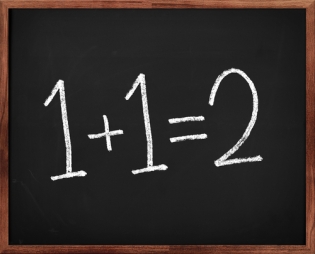 In my God vs Wealth series and God vs Inequality E-book, I’ve mostly based my arguments for why Christians shouldn’t be rich on Bible study, as well as a bit of early church history.
In my God vs Wealth series and God vs Inequality E-book, I’ve mostly based my arguments for why Christians shouldn’t be rich on Bible study, as well as a bit of early church history.
However, I have noticed that many Christians who defend their personal wealth do not just use the Bible, but also theoretical arguments that are based on economics, ethics and experience. Most of them are quite easy to counter with other arguments in the same field for why wealth is wrong. So in a couple of blog posts, I would like to discuss some of these arguments for and against wealth, while also connecting them to the Bible.
The first argument I often hear is “You need to be rich in order to give money to the poor” or, alternatively, “It’s good to give money to the poor, but there’s nothing wrong with being rich.” Now, I could agree with the first statement if we define rich as “having an income that exceeds one’s own/family’s needs” because then, per definition, only rich people will be able to give money to the poor without harming themselves or their families.
However, what’s really confusing is that oftentimes, people who use this argument do not solely define “rich” as “earning a large income”, but also as “possessing abundant capital” (i.e. owning a lot of stuff) or “consuming superfluities” (i.e. buying unnecessary stuff). And these definitions are often mixed up, so that I’ve even met Christian brothers and sisters who argue that it’s perfectly fine to spend money on big houses and cars, because you need to be rich in order to give money to the poor.
Now, this clearly contradicts the basic rules of mathematics. Let us take John the Baptist’s redistribution commandment as an example: “Anyone who has two shirts should share with the one who has none, and anyone who has food should do the same.” (Luke 3:11). Simple mathematics that most of us learn even in preschool tells us that if person A has 2 shirts and gives 1 to person B who has 0, they both suddenly have 1 shirt each and voilà, there is economic equality. Person A cannot keep and give away one of his shirts at the same time, 2-1=1.
John also mentions food, so let us use that example as well. Say that person A has food that is enough to feed two persons for a month, and B has none. Obviously, if we follow John’s exhortions, A will give half of the food to B. But lo and behold, here comes person C who also lacks food. Say that A has some cash that could either be exchanged for food for a month or for a totally unnecessary video game. Now he has a moral obligation to help C, based on Biblical ethics:
If anyone has material possessions and sees a brother or sister in need but has no pity on them, how can the love of God be in that person? (1 John 3:17)
Person B has only food for him/herself in our example, so B does not have a moral obligation to give away food since s/he then would hunger instead, but A has. Now, this is where it is mathematically impossible to claim that buying superfluities is totally OK because you need to be rich in order to give to the poor, or because there’s nothing wrong with being rich. If A spends his/her money on a video game instead of buying food to C, C will starve. And starvation is bad, obviously.
Since we live in a world where thousands of people die from poverty every day and where humanitarian programs are mostly underfunded, 1 John 3:17 is very relevant today. We have no excuses for spending money on superfluities. If we say that it’s good to give to the poor but also to spend money on unnecessary stuff, we aren’t really thinking that giving to the poor is good – because then we would obviously try to save as many lives as possible, something that is incompatible with buying superfluities.
In the next post in the series, we will look at the economic “trickle-down” argument.
Micael Grenholm is editor-in-chief for PCPJ.
 Pentecostals & Charismatics for Peace & Justice is a multicultural, gender inclusive, and ecumenical organization that promotes peace, justice, and reconciliation work among Pentecostal and Charismatic Christians around the world. If you like what we do, please become a member!
Pentecostals & Charismatics for Peace & Justice is a multicultural, gender inclusive, and ecumenical organization that promotes peace, justice, and reconciliation work among Pentecostal and Charismatic Christians around the world. If you like what we do, please become a member!


how does one define “superfluity?” Should I only eat rice and beans and never buy chicken, let alone beef? Should I immediately get rid of my computer because I don’t have a job I use it in and therefore, don’t have a need for it, really. I grew up in the 50s and 60s when everyone else had a telephone but we didn’t – were we wrong to get one when I was 17 because my parents could then afford it? We’d survived without it – it was inconvenient but we survived. Should we have sent our $5/month to starving people? I just bought a house – and I repainted the inside. It didn’t really need repainting, except that I didn’t like the dark colors that were there already. I am mostly homebound and I really wanted something more cheerful. Should i have given the money I spent on paint to the homeless?
I’m not trying to be difficult here – my question is sincere. The fact is, there aren’t many people in the U.S. who couldn’t give up something to help others. I’m just asking, “How do you determine what is superfluous?” I think the answer would be prayer and God might give different answers to different people at different times. Extravagant might be a little easier to define, but even that is difficult.
LikeLike
And the o.p doesn’t bother to answer the question so we’re none the wiser.
LikeLike
* womanwonderings question*
LikeLike